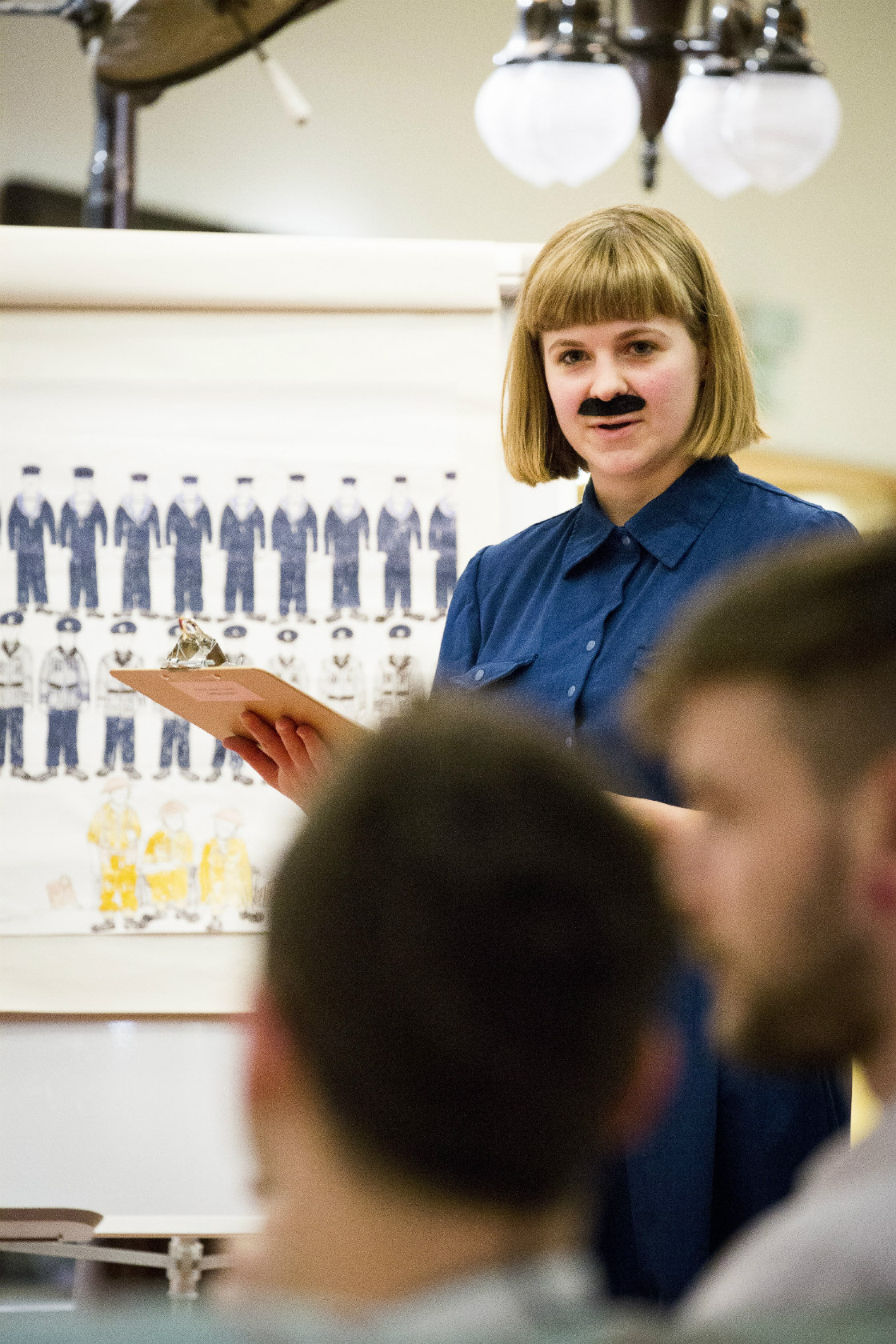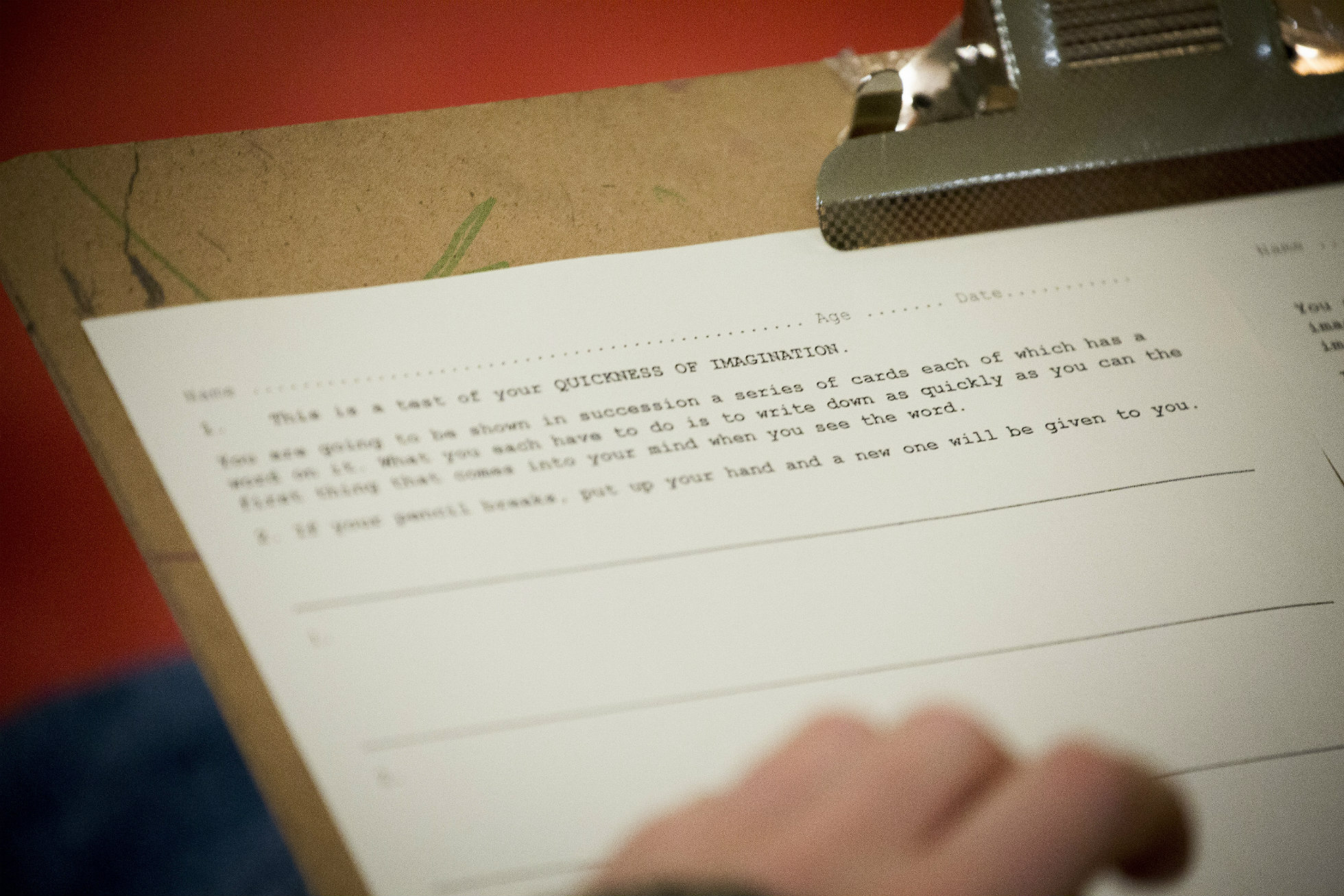This blog is the first in a three part series about the experiences of an archivist, a historian and a social researcher in running the War Officer Selection Boards (WOSBs) in the Wellcome Library’s Reading Room last year.
“And so if you think you are trainable as an officer, it is clearly your duty to volunteer for testing at a War Office Selection Board. The test begins now”.
Clipboard in hand, stick-on moustache itching my upper lip, and best Received Pronunciation accent adopted, I step into the role of an official on the War Office Selection Boards (WOSBs): “Listen to these instructions carefully. If your pencil should break, put up your hand and a new one will be given to you”.

I’m standing in the Wellcome Collection’s Reading Room, with historian Alice White and Tavistock Institute social researcher, Matt Gieve. Between the three of us, we’re putting willing members of the public through the selection process used in WWII for recruiting War Officers.
In front of us, the carpeted area of the Reading Room is full of members of the public, settling down with clipboards for an hour’s worth of individual and leaderless group tasks, before moving into a group discussion. All of the test material is taken from the Tavistock Institute’s archive; all the tests are recreations of psychological recruitment methods, trialled by the British Army in collaboration with the Tavistock Group during WWII.
For me, it’s the archival element of the event which is really exciting – a way of bringing the archive to life by enacting and performing static typescript documents, blowing the dust off, bringing the history into the present.
The War Office Selection Board records really captured my imagination when I was cataloguing them. I found myself pausing to read instructions (“this is a test for the quickness of your imagination. There is no right or wrong answer because everyone imagines things differently”), and picturing the exam-style room, with young candidates in starchy uniforms and sharp pencils, desperately scribbling away, wondering if they’d make officer grade. When I came across blank forms in the archive (Similarity Test: ORANGE – BANANA / DOG – LION), I felt the neat empty answer boxes were tempting me to scrawl words in them. I wondered who had tied up the scraps of regimental nominations into such neat bundles and then filed them away with such care, never imagining they’d end up in a library many decades later.

It felt important to recreate the physicality and aesthetic of the archive at these events, so the words we spoke were directly lifted from the instructions pieced together from the archive, and the answer sheets that participants scribbled away on were facsimiles of the originals from the collection.
Some event participants stepped into the role of war time characters, putting their name and age on the answer sheets as if they were young soldiers in battle. During the group task, a conversation began about the merits of matcha tea, and one of the participants, heavily in role at this stage, responded “Matcha tea?! You do realise we’re at war with Japan?!”.
Others responded to questions in the here and now. Answering the individual test question “If you were lost in a forest in the daytime, how would you find your way out?”, one participant said that she would use CityMapper. The group laughed at this answer, which seemed almost jarringly anachronistic. NB: according to the answer sheet, for two points, you’d need to answer that you would note which side of the tree moss was growing on.
Whether participants answered in character or as themselves, there was something in these responses which opened up a conversation with the archive material itself. This conversation between past and present felt like a very real and active exploration of what archives can provoke; a discussion waiting to be continued by delving into the WOSB records in the Tavistock Institute archive at Wellcome Library….
Read part two here.